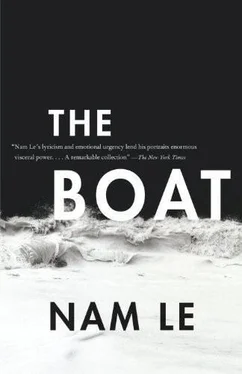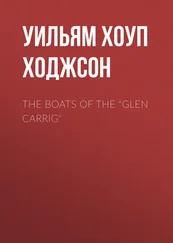"Her phone is still off. No one has seen her."
She collapsed her face into her hands with a moan.
"No one knows who was taken with Reza." He cleared his throat. "I think it was a random arrest. But we must wait. We must go somewhere safe and wait."
"Who were they?"
His face went distant. "Ansar-e Hezbollah they call themselves. Friends of the Party of God."
"Then why did they let us go?" She swallowed; her throat was dry. "What did you say to them?"
He shrugged. She felt it through her arm and chest and legs.
"What did you say?"
He looked up at her with his dark eyes, then bowed his head. "You want to know what I said?" His jaw tensed. "It is not that I am religious or not."
"What?" Now his voice was harsh. "I told them," he said, "I told them I was the son of my father."
His expression glazed over for a moment, then he swung around to face her. "Now tell me the truth. Why did you come here?"
"What do you mean?"
He waited, his eyes coruscating in the candlelight. After a drawn-out silence she looked away.
"To escape," she said. And she laughed.
He laughed too, but bitterly. "Then you are the first American to escape to Iran."
"To escape from a man," she said. It surprised her to say it. To hear herself say it. A giddiness overcoming her and with it this urge to tell out her life, those problems so personal she could only tell them to a stranger. She looked at Mahmoud in the green-gold glow. His face drawn into the slightest suggestion of a smirk — as though it had forgotten itself in the middle of self-mockery. He'd invoked his father's name. He'd saved her from those men. He'd left her at odds with herself. There was sadness and then there was this, a field of candles, smoke-flowers in the wind.
"Parvin," he said, "she comes here to find a man." The mock-lines on his face deepening. "She says she wanted to meet me before she marries me."
"Marries you?"
"She will marry me to save me. So I can go to America if I want. If I choose."
He wasn't joking. He seemed amused by her silence.
"We are not all birds flying in the same direction. We are young-most of us are young." He rubbed his chin with the heel of his hand.
She forced herself to nod.
"Perhaps I will let myself be saved," he went on. "I, too, am young, and expect much from the world."
"How old are you?"
His pupils were gunmetal black. "I am twenty-three. I know what you think. You look at me and you do not see me as a man. I know."
"You're wrong."
And he was. At every turn he'd misunderstood her mind. She was thinking of Parvin; she was thinking of the man in front of her who was Parvin's betrothed, that it was yet another thing she didn't know about her best friend. She was thinking of Reza and of Zahra Kazemi and the man with fat purple lips. She was thinking of Paul. There was no incongruity at all — or maybe everything was incongruous. Maybe that was the condition of things. She was thinking of their drive here, how everything would seem like the grimy, industrial, urban standard — when suddenly she'd glimpse the yearning tapering of a spire, the delicate axis of an arch, and, for a moment, she'd remember to exist alongside the ghosts of this ancient city.
***
Mahmoud led her through the black streets. Many of the mourning candles now snuffed by the risen wind. Dogs roaming the alleyways. She followed him to a tall apartment building, one side of which had been whitewashed and painted over: a twenty-story portrait of a man with a gray beard and black turban. This one wearing glasses. The background was laid down in green and red, the whole wall unevenly illuminated by spotlights.
It was a different hotel. In a blocked-off alley behind them a group of men laughed raucously. A boy wearing a baseball cap urinated against the wall.
The man at the desk was angular and trim-bearded. He watched them unremittingly, not once looking away.
In the room Mahmoud went over and drew the curtains shut. "We will be safe here for now," he said.
"What will happen to Reza?" she asked again.
"I do not know." He started to say something else, then checked himself. "All we can do now is wait."
Again, her breath started coming short and fast. She gulped down some air. "But you think Parvin's okay?"
He sat beside her on the bed. "I think so," he said. Then in a smooth yet awkward gesture he wrapped his arms around her. She neither resisted nor relented.
For what seemed like hours they stayed in that room. Twice he answered his cell phone but learned nothing new. Sarah kept going to the window, lifting the curtains by their hems, looking out into the blinking night as though the act of looking might make her friend appear. Out there it seemed like any other place but underneath, she knew — she understood now — there was an alien body. A deep and adverse structure.
Seven thousand miles she'd come and she'd failed their friendship in every way. Parvin had confided in her — had made her mind and soul intelligible — and Sarah had pushed her away, pushed her into the teeth of some horrible proof. There was the thirteen-year-old girl, those small dark rooms and small bright rooms, there the woman with a girl's face, the man trussed by his wrists to a ceiling fan. A metal chair with a gas flame beneath it. Her heart smashing inside her ribs. Why had she come here? What had she wanted? She'd wanted purpose, sure, but every part of this turned-around place gave purpose to some action — leave, never leave, come back. She'd wanted to look past herself but now, when she did, she saw nothing at all that was different. She was alone. Parvin was alone.
Mahmoud was standing behind her. Then he was propping her up, sliding her closer to the bed. He laid her on her back and went away, returning with a glass of water.
"It is okay," he said. He handed her some hotel napkins. "Listen to me. She will be safe. Like last time."
"How do you know?"
"Try to rest," he answered.
She pushed herself back on the bed. The naked bulb glaring down from the ceiling. The sound of incessant traffic outside. She stilled herself, succumbed to the noise of her body — its angry clunk and shudder. After a while, Mahmoud leaned over her, looked at her closely before saying, "Wait here."
"Where are you going?" She was revolted, even before she spoke, by the desperation she expected in her voice. She closed her eyes, started shivering. She waited.
Hours passed, or maybe minutes, and he came back in and chain-locked the door behind him. He took off his jacket. Then he laid out on the desk two long pipes, a plastic-wrapped baggie, a candle.
"This will help," he said.
"What is it?" He looked up at her curiously. "It is better than drunk," he said.
She knew, on some level — on the level that experienced this place as a series of unfolding stories-that there was amusement, irony, in this. She was receiving the all-Iranian experience. But two days had shattered that way of being here. What she'd thought about things no longer mattered. She was here, now.
Mahmoud fidgeted with his instruments. He struck a match, lit the candle. The pipe shifted in his mouth as he persuaded the white smoke in and out.
"Here," he said. It smelled like chocolate caramel. She watched his fingers, how he shaped the gummy resin until it was pea-shaped, worked it into the widened hollow at the end of the pipe. "Lie down like this," he said.
"Like this," she repeated.
The pipe's bum end was metal, black with an old burn, and he held it to the candle flame. A tindering sound. "Follow the smoke." She did as he said and followed the smoke.
"Like that," he said. He was serious now, that little secret smile on his face. He didn't know her at all. He was kind. He taught her how to rotate the pipe. He prepared the other pipe. Then he gave it to her and she handed him the first and then, when they were done, they exchanged again, almost formally. His shirt tucked tight into his pants. He caught her eye and they both looked away. Much later, he talked, his words solvent with smoke. She talked too. At one point he stumbled up and turned off the light. At one point the streetlamp stopped working and after that there was only candlelight.
Читать дальше











